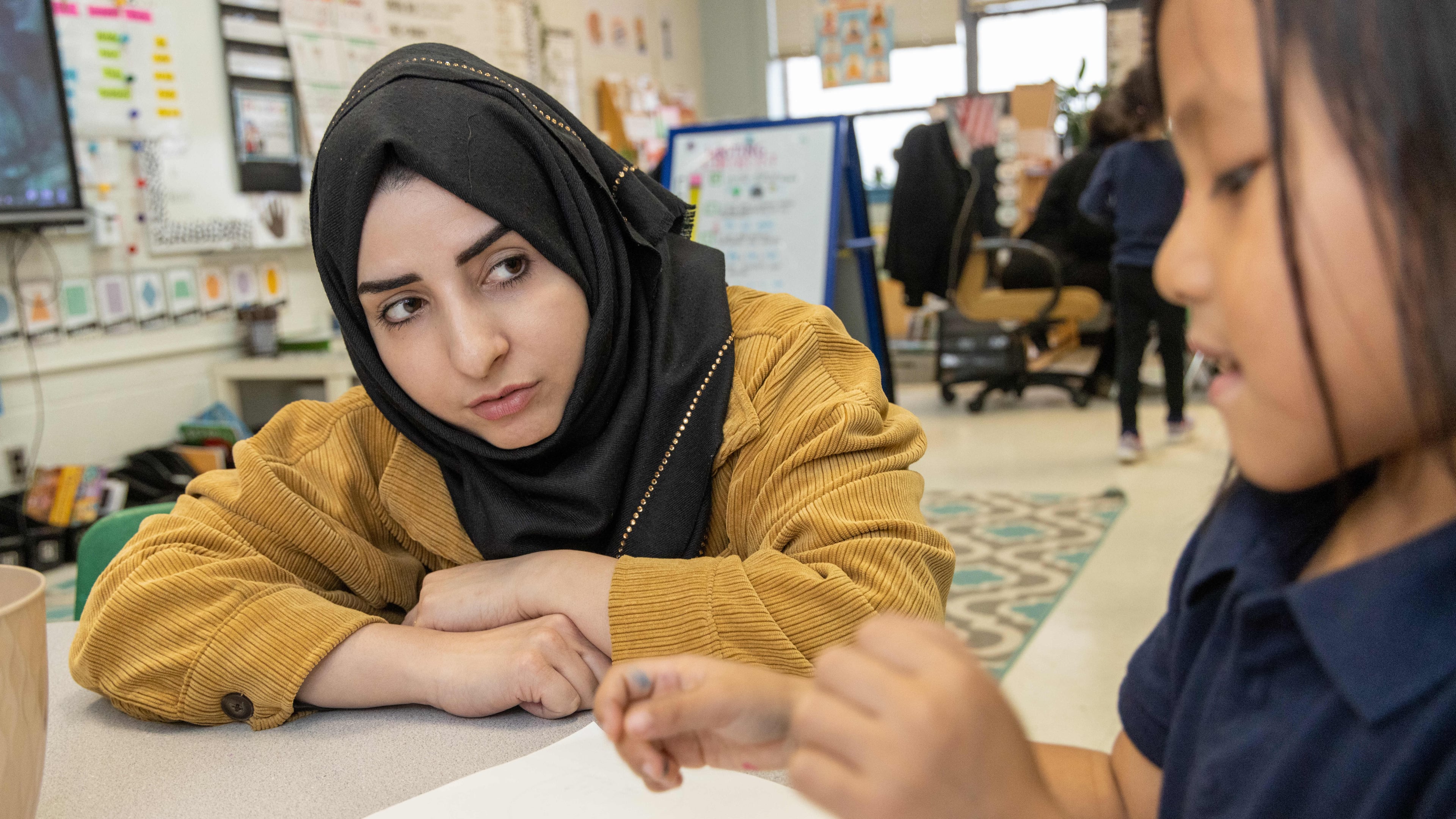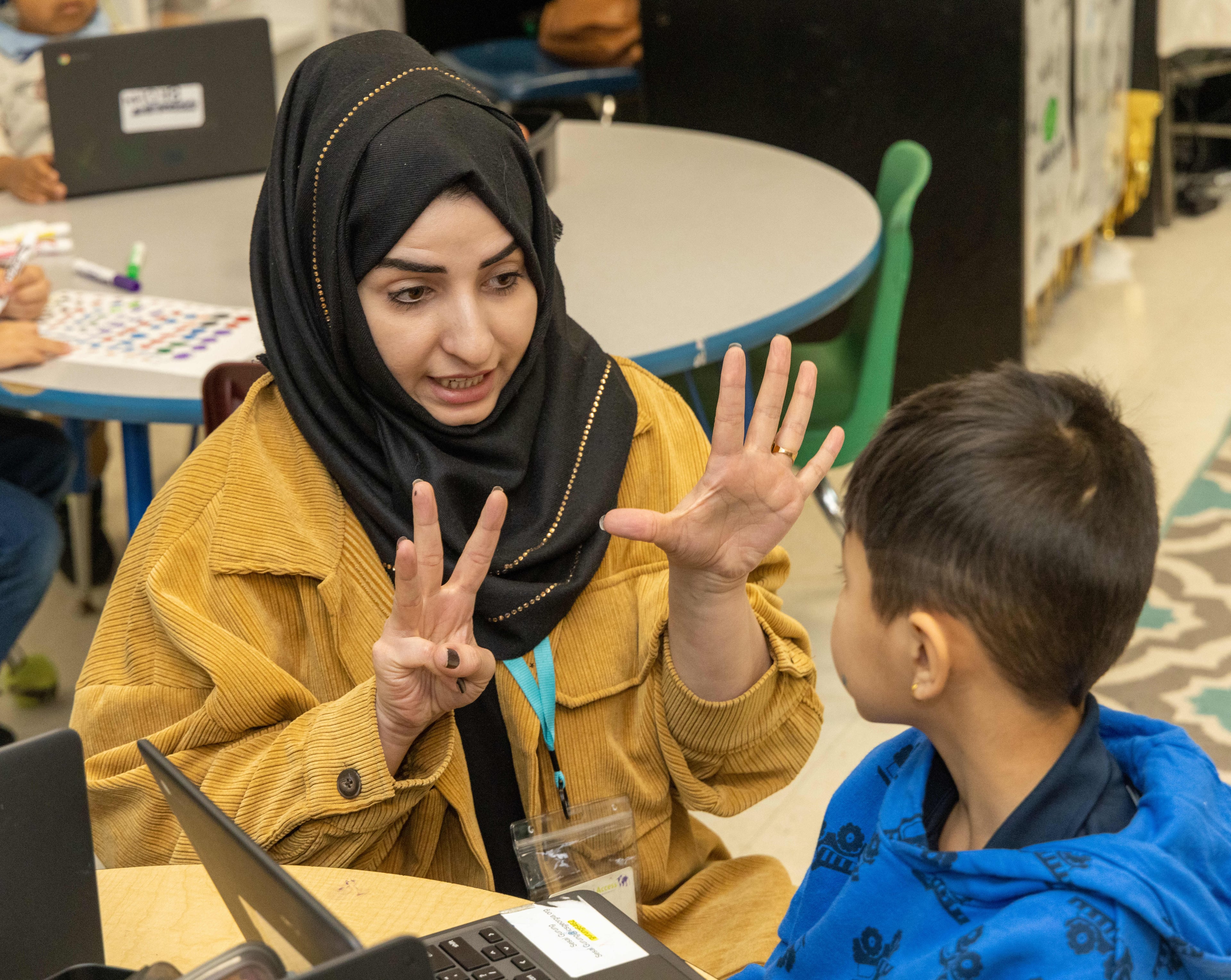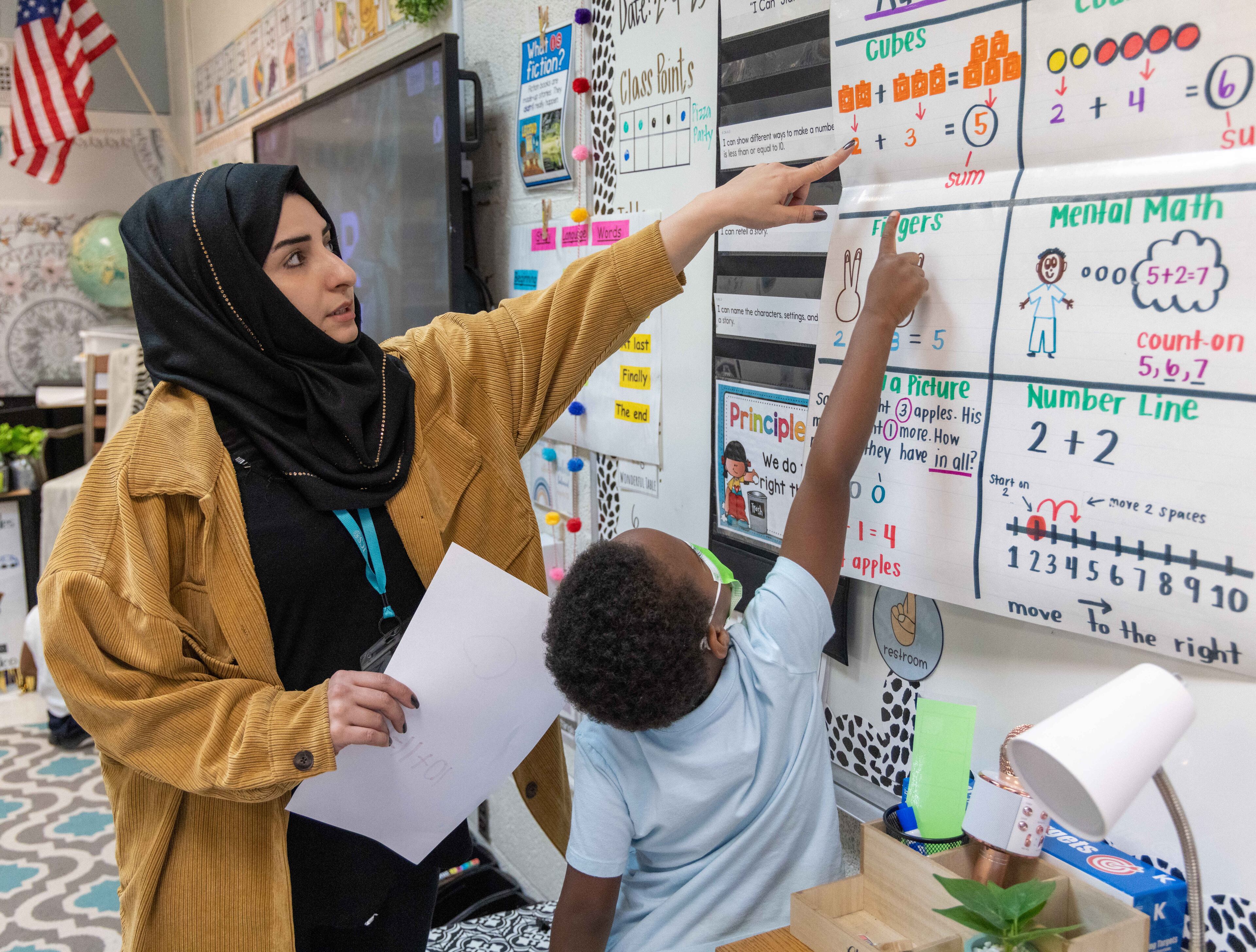School and nonprofit team up to turn refugees into teachers

Shakila Aimaq had no idea where her life was headed after the Taliban reclaimed power in Afghanistan in 2021.
She knew if she stayed in her homeland she’d be subject to the Taliban decree banning women from working or continuing education.
And she knew, if she came to the United States, the seven years she spent studying to become a doctor would not be recognized. The same would be true for her husband, who had an active dental practice in Afghanistan.
“We were told you can be a doctor or dentist here, but you have to start over at the beginning,” said Aimaq, a 33-year-old mother of two who moved with her family to Atlanta on Sept. 2, 2021. “It’s a lot to start all over again.”
But through a new partnership between the International Community School (ICS) in Decatur and the nonprofit Refugee Women’s Network (RWN), Aimaq is headed down a new career path and one she wanted all along.

So how did this come about?
Fran Carroll, interim executive director of ICS, came across an article about a collaboration between the Refugee Women’s Network and Atlanta’s Frazer Center for child development. She read how the two organizations created what they consider a win-win training program. Refugees are trained for jobs in childcare, and the often short-staffed field of early education has a new supply of qualified workers. To date, about a dozen refugees have completed the training and are working in child development.
Carroll wondered why that training model couldn’t be replicated to help with the growing shortage of K-12 teachers and the desire of educated refugees for meaningful jobs.

“We felt like there was an opportunity to partner to help bridge the gap between I have an education, I am highly educated, and I also have the desire to become a teacher.”
Sushma Barakoti, executive director of the Refugee Women’s Network, agreed, and her organization is clearing a path for the refugees to become teachers by providing support with child care, transportation, and classes in English as a second language if needed.
“We provide all these other services so that they can really hone in on their program and be successful,” she said. “We really try to lessen their barriers.”
A master’s degree from most countries is equivalent to a bachelor’s degree in the United States, so the refugees take online classes from a university in Florida that has a program specifically for international professionals who want to be teachers in the U.S., the two women said.
The program takes two to three years to complete. The students are assigned to kindergarten classes as teacher assistants. And by being in the classroom and interacting with students, the refugees find that their own language skills are improving, Barakoti said.
Aimaq is working with RWN as an in-house translator. She and two other refugees are participating in the training program with the goals of becoming certified teachers and inspiring others to pursue their dreams.
Aimaq is excited. She was enrolled in a teacher program for two years in Afghanistan before she decided to pursue her medical degree.
“So I have teaching experience,” Aimaq said. “As a child, that was my dream job to become a teacher. I love teaching.”
MORE DETAILS
- International Community School: icsgeorgia.org
- Refugee Women’s Network: refugeewomensnetworkinc.org
- Frazer Center: frazercenter.org
More Stories
Keep Reading

